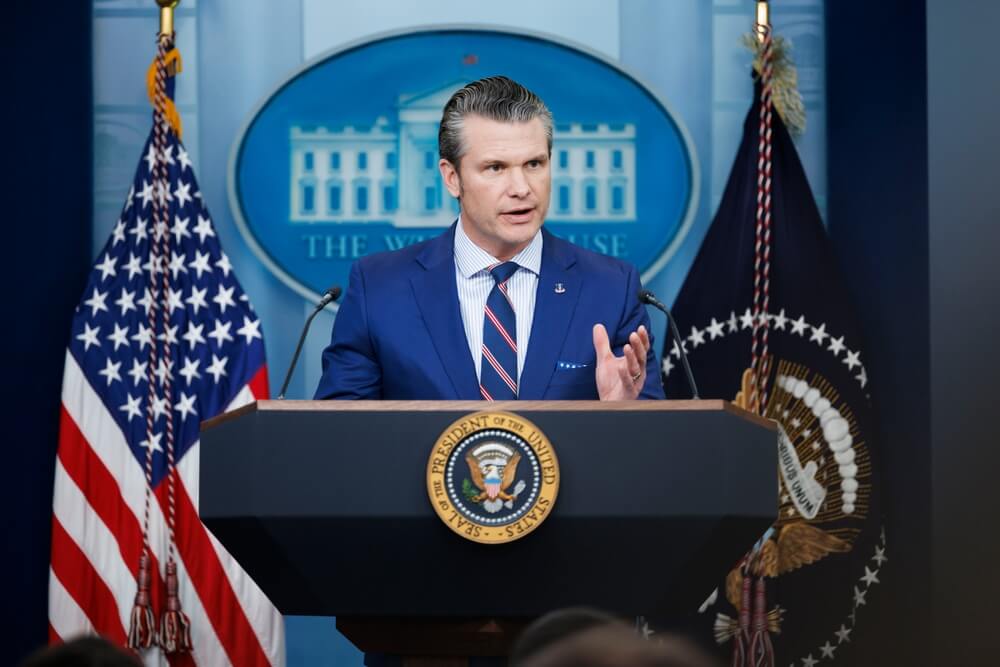The unpredictability of US President Donald Trump's foreign policy has led to assessments that reports of an alleged Russian demand for NATO to withdraw from some parts of its eastern flank may well be realistic.
Moreover, Trump's dramatic rapprochement with Moscow's positions on ending its invasion of Ukraine supports the seriousness of such claims. The US president and top officials in his administration have spoken out in recent days, surprising Ukraine and its European allies.
The Financial Times announced this week that European officials believe that Trump “will most likely agree to withdraw US troops from the Baltic states and possibly further west, as a result of which the EU will become vulnerable to the Russian army.”
These claims were largely confirmed by Cristian Diaconescu, the Romanian president's security adviser. He added that Moscow had made these demands during talks with senior American officials in Riyadh.
Although Mr Diaconescu later retracted his claims and said they were Moscow's demands ahead of its invasion of Ukraine in February 2022, many were unsettled.
Understandably, the Kremlin has denied that it demanded NATO's withdrawal from eastern NATO member states bordering Russian territory. But the Kremlin's credibility has long been questionable.
Moreover, in the current constellation of dialogues initiated by Washington and Moscow, the Russian call for the de-NATO-isation of Eastern Europe would not be at all surprising.
Reactivation of old demands
An American official said in December 2021, two months before the Russian attack on Ukraine, that the demands announced by the Kremlin at the time as a condition for de-escalating tensions over Ukraine were "unacceptable."
In addition to the demand that Ukraine should not be admitted to NATO, Moscow demanded, at the time, precisely what is now back on the agenda—the demilitarisation of those NATO member states that joined the alliance after 1997.
These are practically all Eastern European states that were once part of the Soviet military alliance.
Three years later, as much as the demand for NATO to withdraw from its eastern member states seems "unacceptable," why should that demotivate Moscow to try again?
From today's perspective, it is obvious that Russia made such a request at the time, even though it knew it was unfeasible, because it was already determined to attack Ukraine, which it did two months later.
But three years later, as much as the demand for NATO to withdraw from its eastern member states seems "unacceptable," why should that demotivate Moscow to try again?
The American shift
The American president has already accepted a whole range of Putin's positions on Ukraine, including Trump's major reservation that Russia is responsible for the war.
Trump has also moved closer to Putin's views on European support for Ukraine's defence against aggression, which is why he is trying to keep the Europeans out of the peace talks.
This is why the Baltic states in particular are concerned about the outcome of the Russian-American dialogue. They have long warned that a favourable outcome for Russia would not mean an end, but only a continuation of its aggressive aspirations towards its neighbours.
The Baltic region has long been the scene of frequent, deliberate severing of undersea energy and communications cables
The Baltic states, often seen as the first theatre of a possible new Russian escalation towards Europe, are already largely confronted with low-intensity attacks. They are the area of strong Russian cyber operations, especially the spread of disinformation.
The Baltic region has long been the scene of frequent, deliberate severing of undersea energy and communications cables, in which ships of the so-called "shadow fleet" of Russian tankers, which serve to circumvent energy sanctions, play an important role.
Although the possibility of a Russian attack is assessed as "low" as long as Russia is involved in Ukraine, Latvian intelligence estimates that this risk would increase significantly with the conclusion of peace in Ukraine.
Moscow could then rebuild and regroup its armed forces, and the risk of an attack on a NATO member state would become "significant" in the next five years.
Similar assessments of the high probability of a Russian attack on a NATO member state after the end of the conflict in Ukraine have previously been made by other members of the alliance, such as Germany and Poland.
Resistance of the Europeans
Throughout the war in Ukraine, there were reasons to fear Russian action against the Baltic states. But with the Trump administration taking office, these reasons have greatly increased as it seeks to reduce its security presence in Europe and force Europeans to take charge of their own defence, notably by increasing defence budgets.
 US Secretary of Defence Pete Hegseth warned that the presence of American troops in Europe will not "last forever"
US Secretary of Defence Pete Hegseth warned that the presence of American troops in Europe will not "last forever"
US Secretary of Defence Pete Hegseth's warning last week that the presence of American troops on the continent will not "last forever" has only heightened the concerns of European NATO member states, especially those in the east.
Lithuanian Defence Minister Dovilė Šakalienė announced that she will travel to Washington in early March to urge the US to keep its troops in her country and increase the current battalion-sized contingent.
In the meantime, the Baltic NATO member states, leading the way in allied support for Ukraine, together with their European partners, have the difficult task of correcting the current US course regarding Russia. It is a course that has made it possible for Russia to request NATO's withdrawal from its eastern member states.